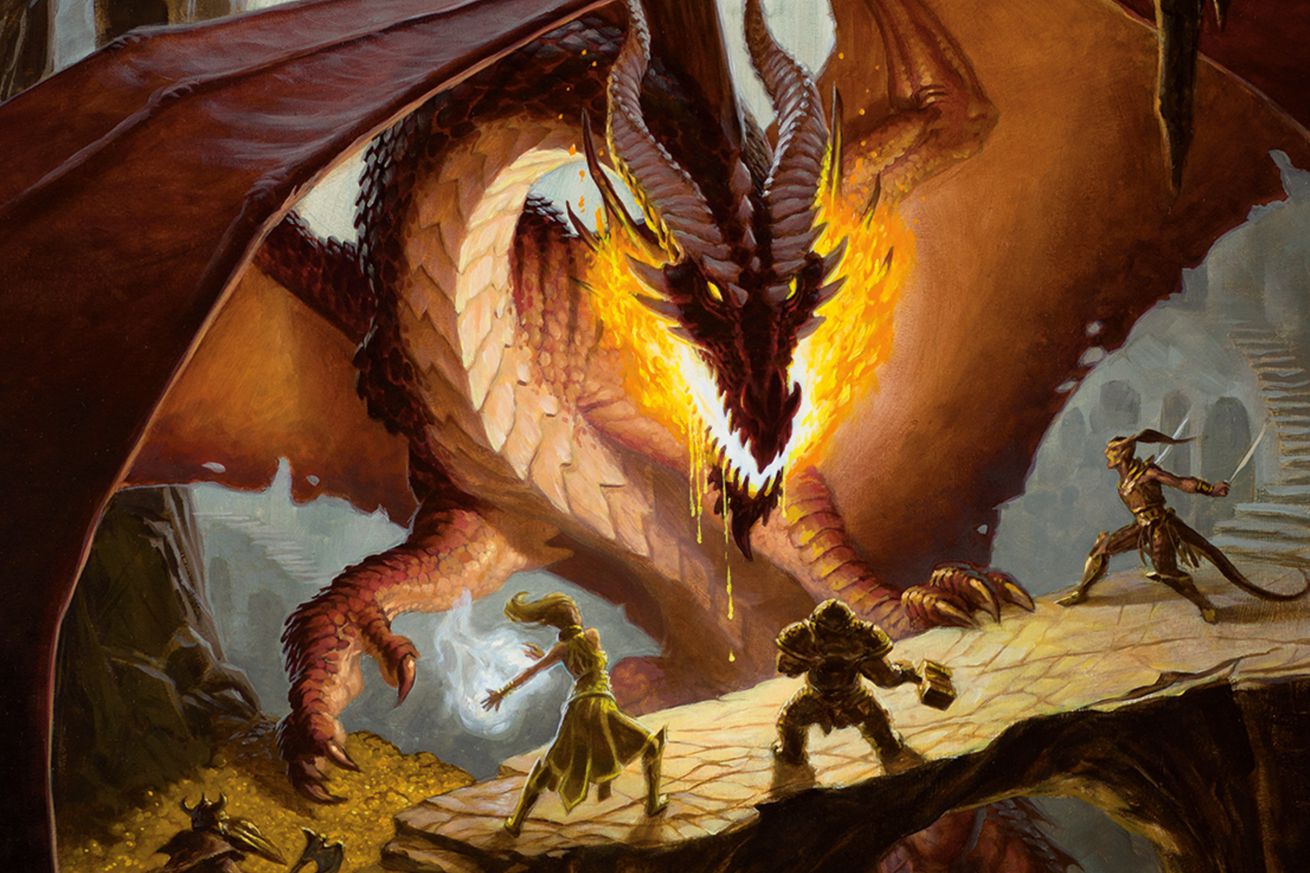
D&D responds to community backlash with new licensing terms
In an announcement on the DnD Beyond website, Kyle Brink, executive producer of D&D, has introduced OGL 1.2, the latest version of the Dungeons and Dragons Open Gaming License. Brink highlighted that this version of the license doesn’t contain any of the ownership, royalties, and revenue reporting requirements found in the more restrictive OGL 1.1 that leaked last week.
Wizards of the Coast (WOTC) — the Hasbro-owned publisher of Dungeons & Dragons — released the new draft ahead of its self-imposed deadline of Friday, January 20th. Unlike the previously leaked draft, OGL 1.2 will be subject to community feedback known as “playtesting” in the tabletop gaming community.
One of the major concerns for the D&D community is that the new license was intended to replace the original OGL 1.0a, and that it could be retroactively applied to all content and products published under the license.
WOTC now explicitly says that older content will be unaffected by the new OGL 1.2. “Nothing will impact any content you have already published under OGL 1.0a,” said Brink. “That will always be licensed under OGL 1.0a. Your stuff is your stuff.” Within the announcement, Brink said that the original OGL is being deauthorized to allow WOTC to enact the protective options against publishing harmful, discriminatory, or illegal content covered in OGL 1.2. “We want an inclusive, safe play experience for everyone,” Brink said. “This is deeply important to us, and OGL 1.0a didn’t give us any ability to ensure it.”
Kyle Brink’s summary of the new D&D Open Game License 1.2:
Virtual Tabletop Policy: We will continue to support VTT usage for both OGL creators and VTT operators. The Virtual Tabletop Policy spells this out.
Ownership disputes: You own your content. You don’t give Wizards any license-back, and for any ownership disputes, you can sue for breach of contract and money damages (versus holding up products other players are waiting for while we sort it out).
No hateful content or conduct: If you include harmful, discriminatory, or illegal content (or engage in that conduct publicly), we can terminate your OGL 1.2 license to our content.
Creator Product Badge: You’ll have the option to include a badge on your OGL works. Once we get your feedback on the badge, we’ll create a guide on how to use and display it.
In addition to introducing OGL 1.2, WOTC also revealed that the core game mechanics for D&D will be placed under a Creative Commons license. It’s a move that will likely win back some favor with the D&D community. Creative Commons is a nonprofit organization dedicated to overcoming “legal obstacles to the sharing of knowledge and creativity,” and will steward the base rules and mechanics of D&D, effectively placing them outside of WOTC’s control for good.
“We’re giving the core D&D mechanics to the community through a Creative Commons license, which means that they are fully in your hands,” said Brink. “If you want to use quintessentially D&D content from the SRD such as owlbears and magic missile, OGL 1.2 will provide you a perpetual, irrevocable license to do so.”
The transparency of these updates follows a more heartfelt apology published by Brink earlier this week, after some D&D fans found WOTC’s initial apology for the leaked OGL 1.1 a bit insincere. Addressing concerns of the wider tabletop role-playing game (TTRPG) community, Brink said “Our language and requirements in the draft OGL were disruptive to creators and not in support of our core goals of protecting and cultivating an inclusive play environment and limiting the OGL to TTRPGs. Then we compounded things by being silent for too long.” Brink added “We hurt fans and creators, when more frequent and clear communications could have prevented so much of this.”
The blog post announcing OGL 1.2 will be updated sometime later today with a link where fans and players can submit feedback on the draft. The feedback survey will remain open until February 3rd, and WOTC will address any feedback or updates by February 17th. “The process will extend as long as it needs to,” said Brink. “We’ll keep iterating and getting your feedback until we get it right.”

